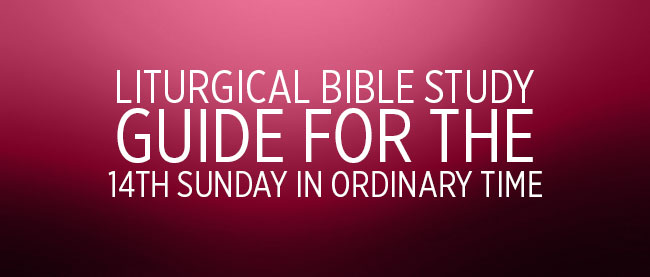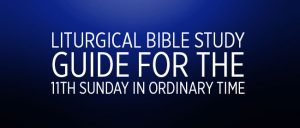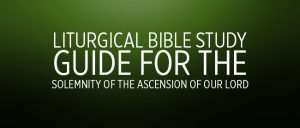1st Reading – Zechariah 9:9-10
The Book of Zechariah, the name means “Yahweh remembers,” comes chronologically after that of Haggai. The prophet Zechariah belonged to a priestly family which had returned from exile in Babylon. Like Haggai, he was called by God in 520 B.C., the second year of the reign of Darius. He probably lived until very near the time the new
Temple was finished.
Working in a literary style quite different from Haggai’s but with the same doctrinalcontent, Zechariah describes in the first six chapters of his book, by means of eight visions, God’s plan for the restoration of the Temple and of the city of Jerusalem, and promises God’s blessing on Israel. As a prerequisite God asks His people for moral correctness; to be shown in acts of justice and mercy, and obedience to His commandments. In the seventh chapter Zechariah tells the people that fasting is pleasing to God if it stems from genuine piety (in Zechariah’s time the Jews gave much importance to fasting but their motivation was at fault because they were more concerned about appearing to others to be good than about seeking God’s favor).
In the ninth chapter, from which our reading for today comes, Judah is set on one side, Judah’s neighbors on the other. God, whose power extends to all nations, takes Judah’s side, and as a ruler who goes to war for his people, He vanquishes Judah’s neighbors. Then the king of peace arrives; an earthly king able to inaugurate his peaceful reign because of the divine victory.
2nd Reading – Romans 8:9, 11-13
For the past two weeks we have been looking at what Saint Paul describes as three ages: Adam to Moses which is the natural period represented by the fallen, unhappy family; Moses to Christ which is the legal period in which one nation is the example; and from Christ onward which is the period of international blessing where all nations are blessed and freed from the Law through the grace of Christ. The ancient rabbis often divided their six thousand years of man’s history into these same periods with the understanding that in the last two thousand years the Messiah would give a new law or reinterpret the old one. Saint Paul has recast this period in terms of Jesus the Christ. Chapter 7, which we skip over in our Sunday readings this cycle, contains a description of the doctrine of concupiscence, our tendency to sin as the result of original sin (Romans 7:7-25). In today’s reading we hear Saint Paul tell us that Christian life is lived in the Spirit and is destined for glory because Christian life is empowered by the Spirit.
Gospel – Matthew 11:25-30
Last week we heard the final instructions which Jesus gave His newly commissioned Apostles before sending them out. Jesus has traveled through Galilee but there has not been a national conversion. Instead, in spite of the miracles He has performed, He has largely been ignored and rejected.





